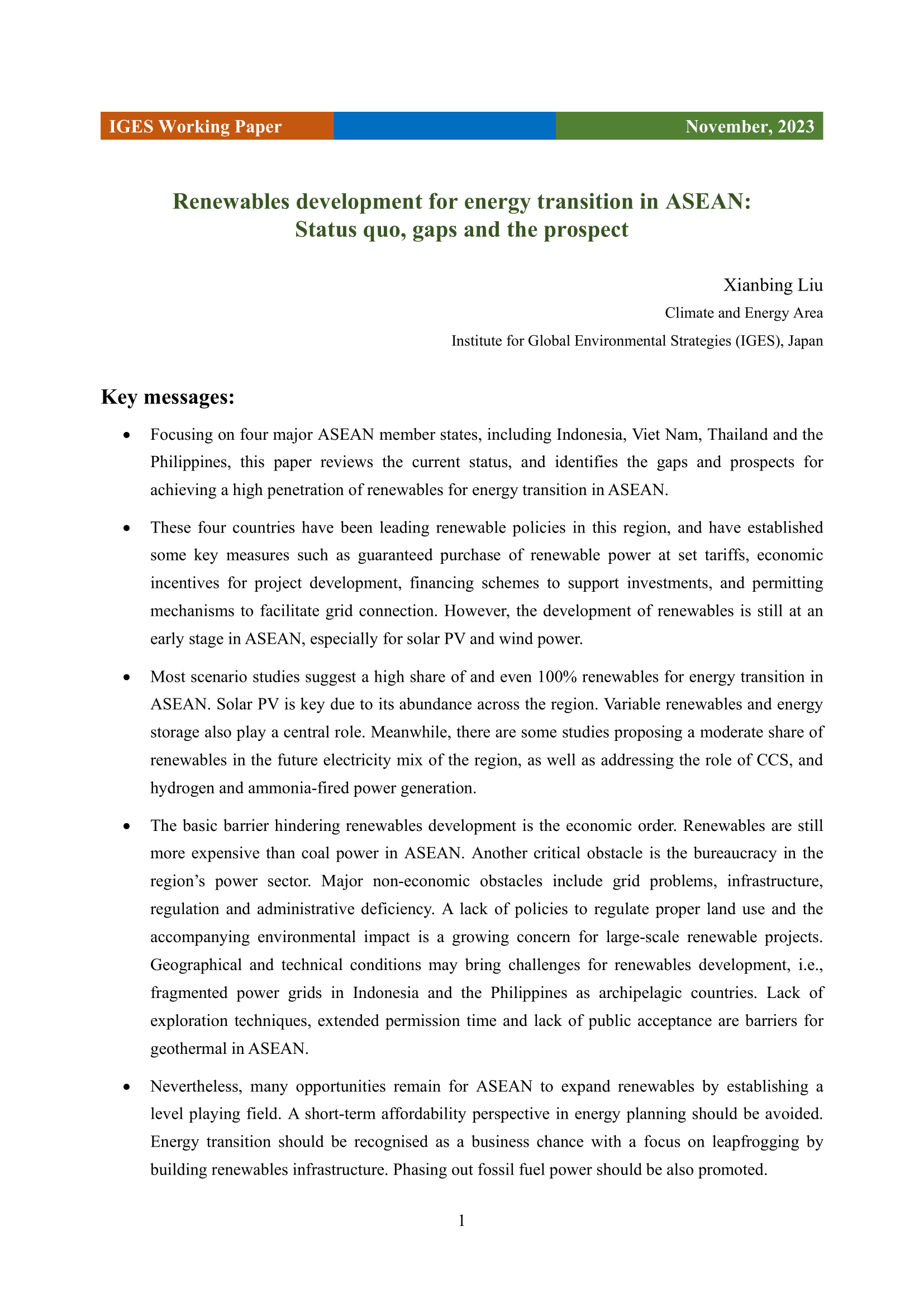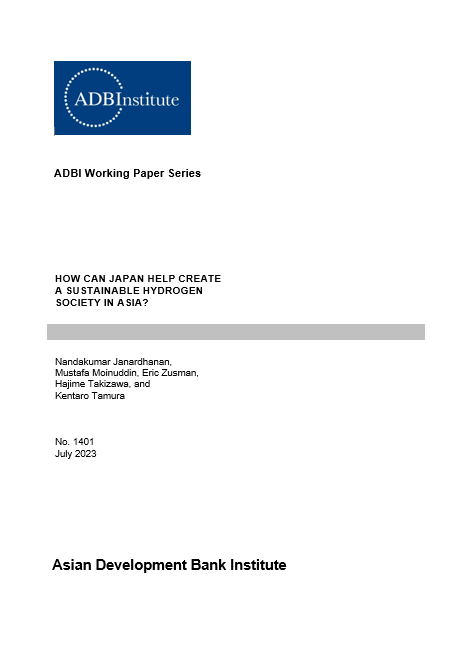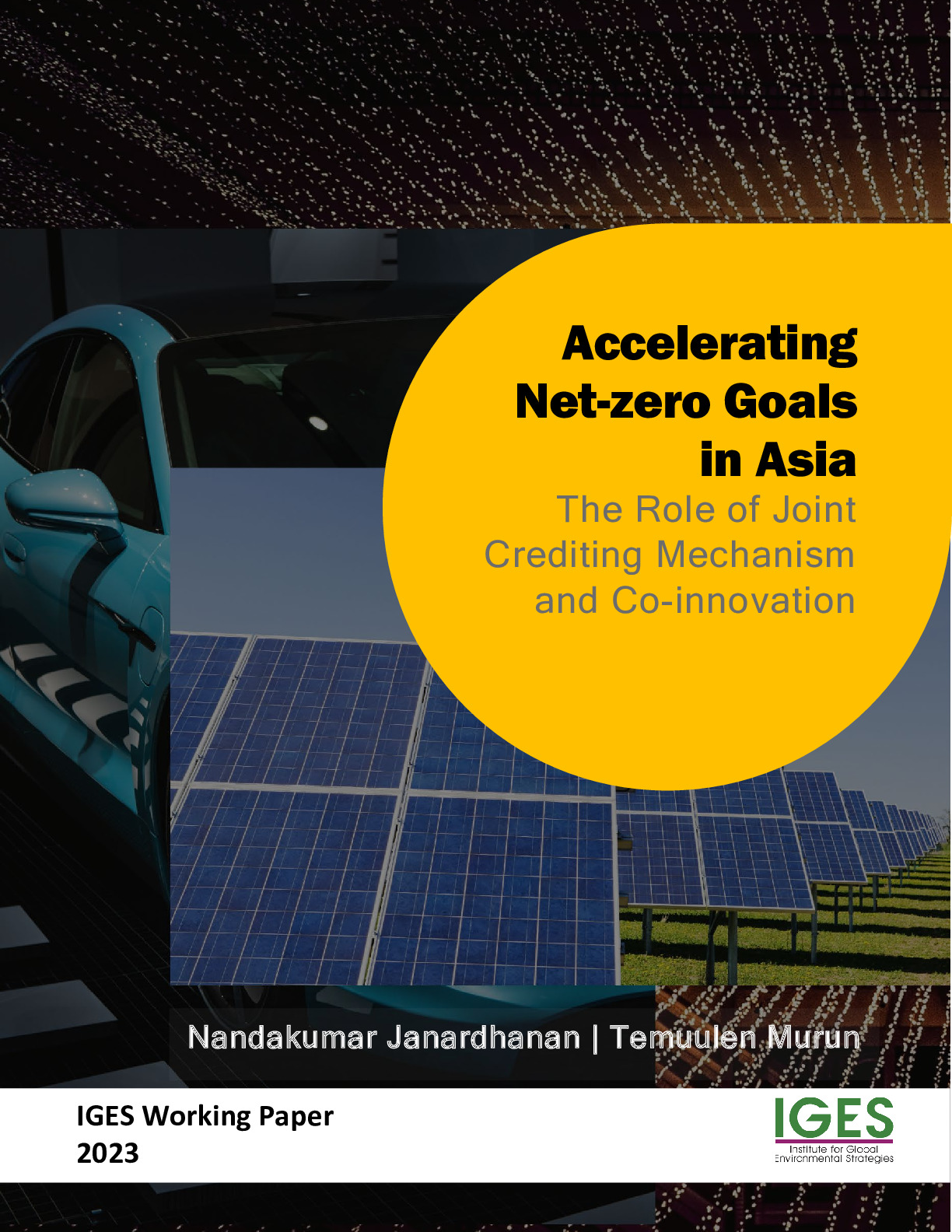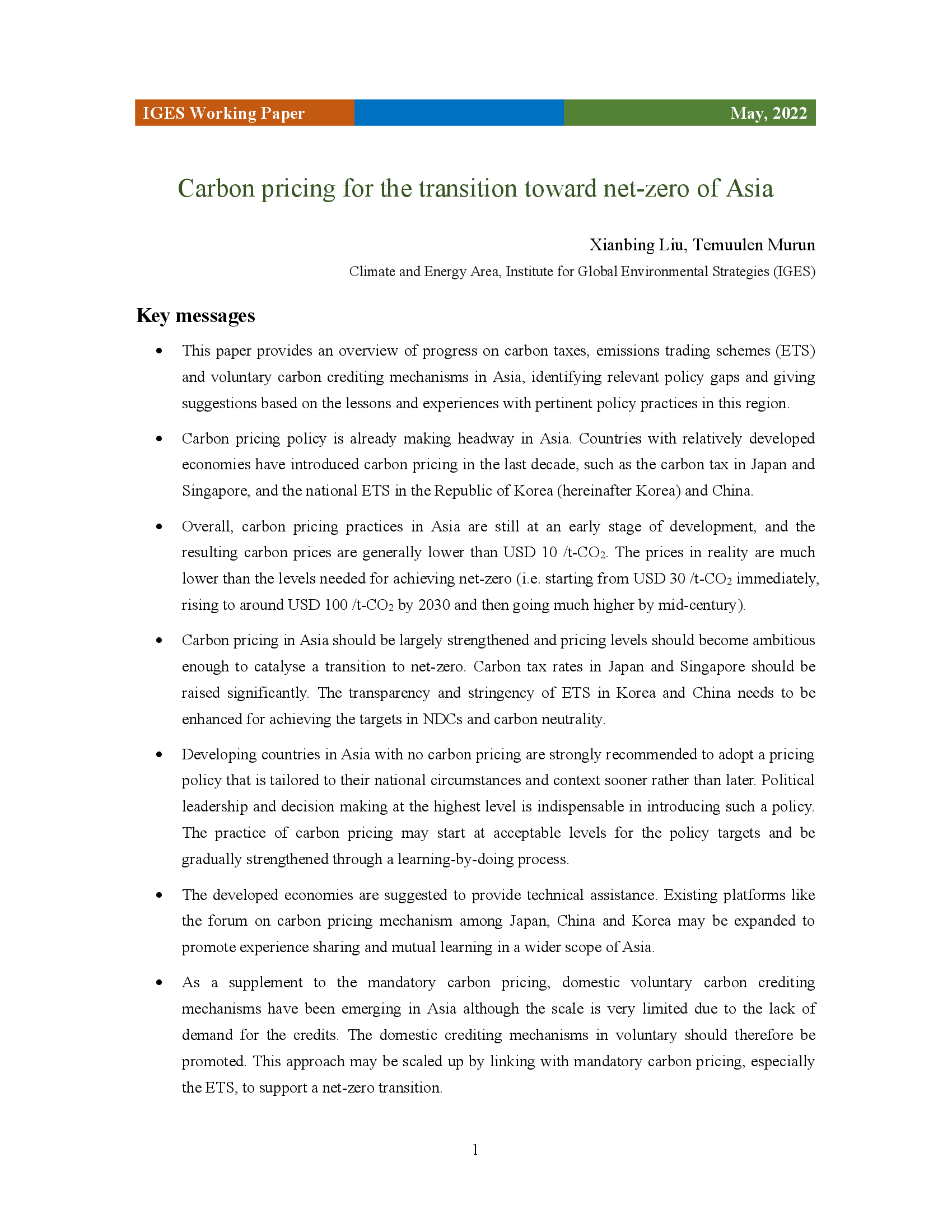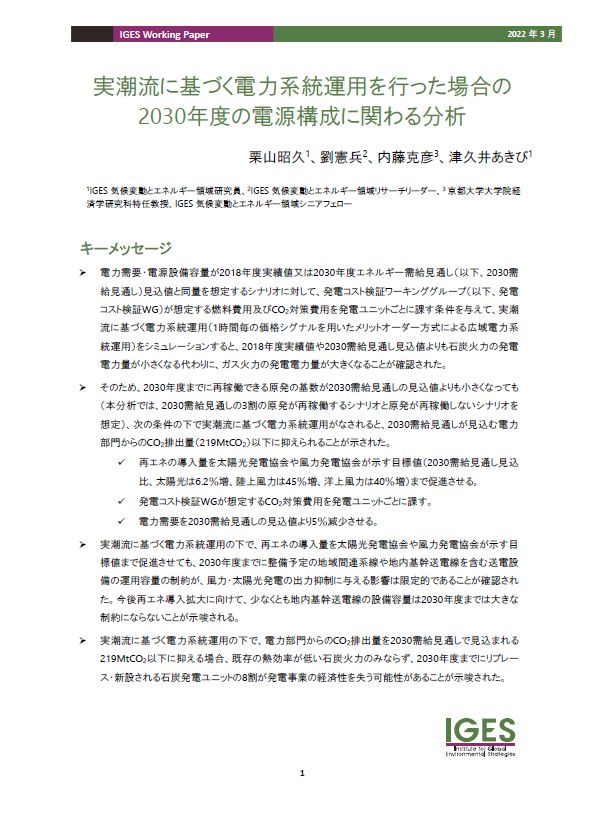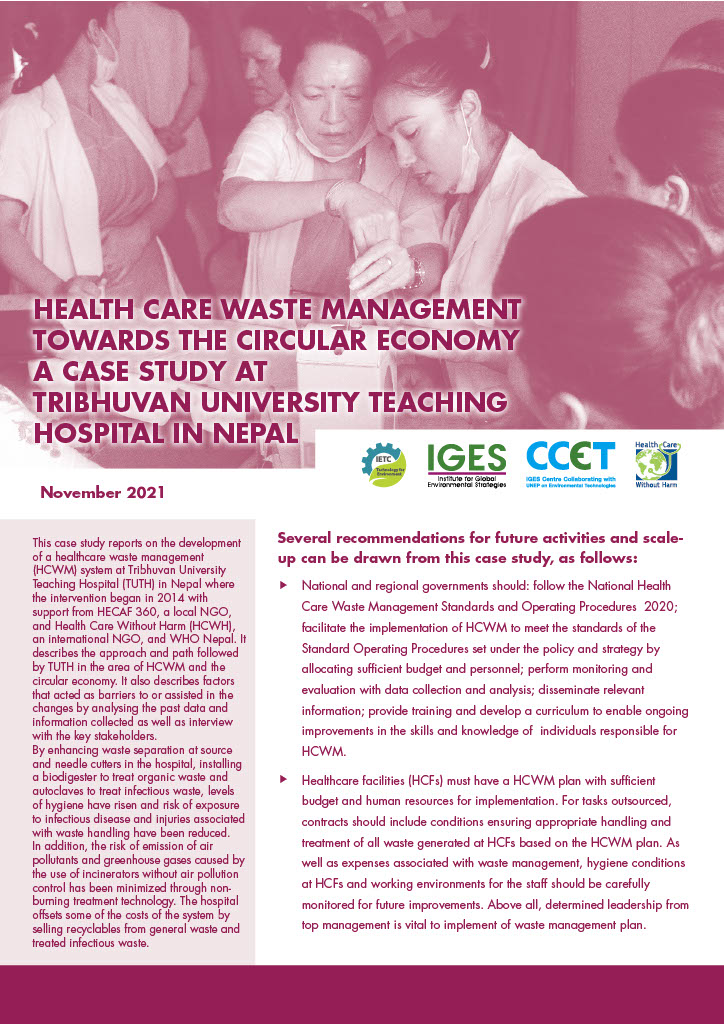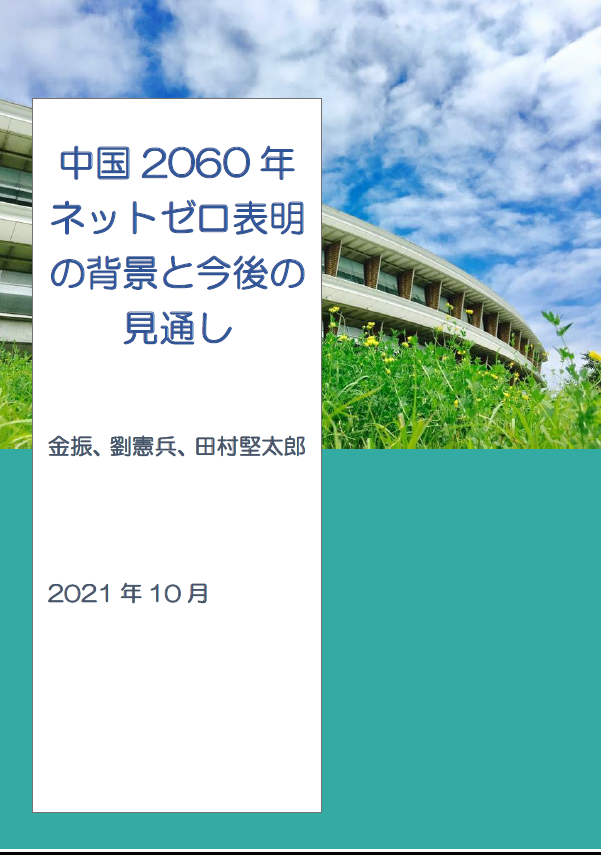Focusing on four major ASEAN member states, including Indonesia, Viet Nam, Thailand and the Philippines, this paper reviews the current status, and identifies the gaps and prospects for achieving a high penetration of renewables for energy transition in ASEAN. These four countries have been leading renewable policies in this region and have...
Keywords:

